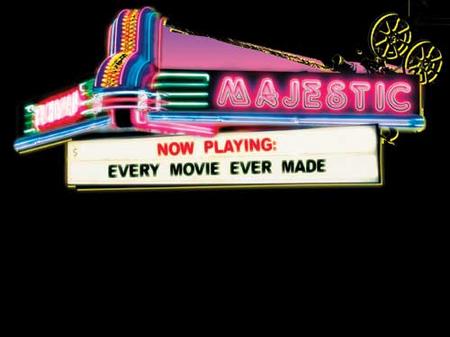| Every movie ever made | 2004-10-07 20:25 1 comment |
 by Flemming Funch by Flemming FunchBoingBoing mention of current Wired article The Long Tail, about how, in the online world, there's now a viable market for lots of books and movies that aren't bestsellers or hits, and that you wouldn't find at Blockbusters or Barnes and Nobles. All those items far down the list of the top 500,000 books or films. That would be the "long tail". And if they don't need to actually be stocked in an actual store, and if clever search technologies, like Amazon's recommendations, make them easy to find, there's no reason not to sell them. And one might actually find that, put together, those fringe items outsell the hits. Summary: Short form: The rise of online distribution and its unlimited shelf space is leading to a dramatic shift in the entertainment business from hit-driven economics to niche-driven economics. Content that was once relegated to the fringe, beneath the threshold of commercial viability, is now increasingly able to find a market in distributed audiences. The interesting work is now in finding way to push demand down the Long Tail.None of this should be any kind of surprise to anybody paying attention to the internet. Of course we want access to everything ever made, and if it is out there, there will be somebody who's interested in it. Duh. I guess the guy's mostly preaching some marketing speech to media and book companies, to tell them they can make money and be a little more hip by forking over more of what they're sitting on. And he gives examples of people who've done that. And his advice to them is decent: Make everything available. Make it cheap. Make it really easy to find. Really, some more fundamental things need to change. A free market is to deliver what people want for what they're willing to pay for it. And it has certain inherent mechanisms for adjusting these things. In a free market it is a no-brainer to make available everything that it is possible to make available, and to make it attractive for people to pay for it. But the media companies are instead operating from a monopoly position, deliberately limiting the supply and forcing artificially high prices to be paid for imaginary services. Changing that takes more than just having them realize how they can make money by doing it with more of their inventory. But a good start, maybe. And, yeah, I want equal access to every movie, tv-show and book ever written. |